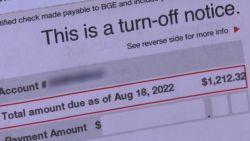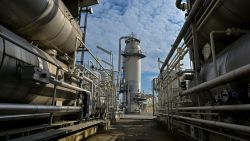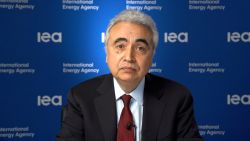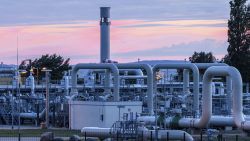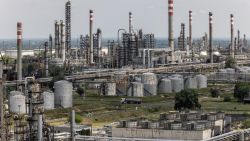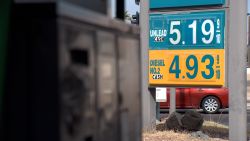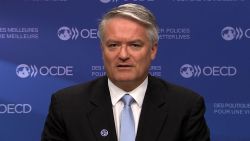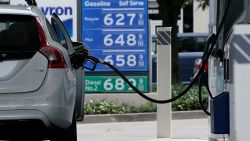Royal Dutch Shell (RDSA) said its oil production and carbon emissions have peaked as it detailed plans to gradually wean itself off fossil fuels. Climate activists said it hadn’t gone far enough.
The Anglo-Dutch company said in a statement on Thursday that it expects its oil production to decline by between 1% and 2% each year after peaking in 2019. Its total carbon emissions likely peaked in 2018, it added.
Shell unveiled plans in September to become a net zero emissions business by 2050 (including from its own products and those that it sells), joining European rivals BP (BP) and Total (TOT) in making a shift towards clean energy.
The oil giants have written off billions of dollars of assets, spurred on by forecasts that global oil demand may never recover to levels reached before the pandemic, amid permanent changes to how people work and travel and growing concerns about the climate crisis.
Now Shell is setting out how it hopes to achieve its goals. It wants to sell more clean energy, while investing in carbon capture and forestation projects to offset emissions. It will also expand its biofuels production and distribution business.
“Whether our customers are motorists, households or businesses, we will use our global scale and trusted brand to grow in markets where demand for cleaner products and services is strongest, delivering more predictable cash flows and generating higher returns,” said CEO Ben van Beurden.
While European oil companies try to reinvent themselves, America’s ExxonMobil and Chevron (CVX) have so far resisted major changes to their businesses. But shareholders are agitating for a shift in direction and there are signs that the pressure may be starting to have an impact.
Chevron CEO Michael Wirth told CNN Business this week that the company plans to invest in carbon capture and storage and hydrogen. Still, Wirth said that oil and gas will remain an important part of Chevron’s business for years to come.
That’s the case at Shell, too, despite Thursday’s announcements.
Focus on power sales
Based on the company’s forecasts, Shell’s oil production will decline by as much as 18% by 2030, and 45% by 2050. But that means it will still be producing more than 1 million barrels of oil a day in 2050. (The company produced nearly 1.9 million barrels of oil a day in 2019).
BP said in August that its oil and gas production would fall by 40% on 2019 levels by 2030 as it ramps up low carbon investments.
Shell will continue to pour around $8 billion a year into oil exploration and pumping, it said Thursday. It plans to invest $2 billion to $3 billion annually into renewables and hydrogen, with around $8 billion to $9 billion going towards integrated gas and chemicals.
“Shell will continue to invest more than 80% in oil and gas in the upcoming years, while investments in renewable energy are lagging far behind,” Friends of the Earth Netherlands, a climate action group, said in a statement. It added that Shell’s strategy wrongly focused on offsetting emissions rather than reducing them in absolute terms.
According to Shell, capital spending will shift to clean energy “over time.” The company is aiming to build “low-carbon businesses of significant scale by the early 2030s.”
Chief financial officer Jessica Uhl told journalists that Shell will prioritize selling clean electricity to customers rather than investing in renewable power generation, as rivals such as BP have done. “In order to sell those products you don’t necessarily need to own the generation capacity,” she added.
The company wants to double its sales of electricity by 2030, and grow its global electric vehicle network from more than 60,000 charge points today to around 500,000 by 2025. It expects to sell power to more than 15 million retail and business customers worldwide.
Shell said it will give shareholders an advisory vote on its Energy Transition Plan, adding that it is the first company in the sector to do so.



